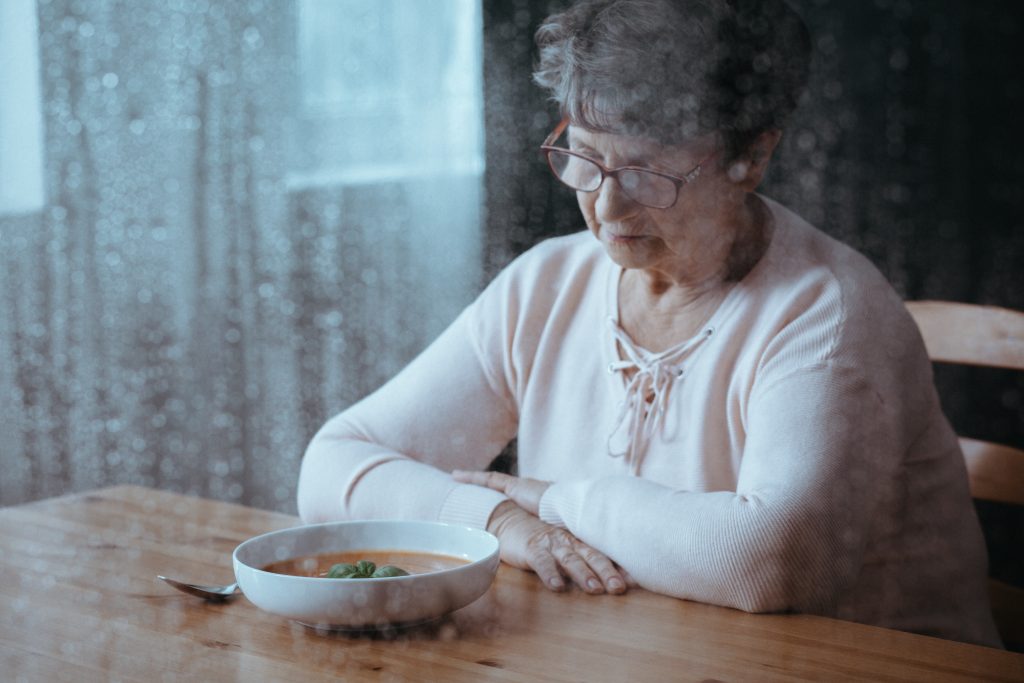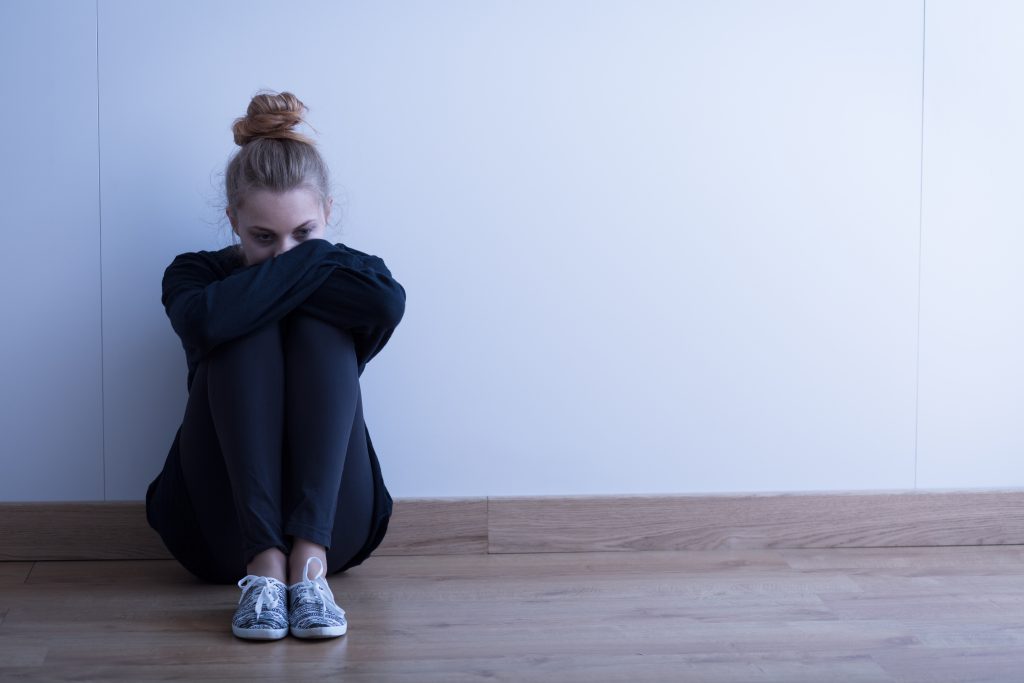August 5, 2021
Why Am I Not Hungry?
Experiencing a loss of appetite from time to time is normal as it may occur when you’re feeling stressed, anxious, or ill. However, undergoing a complete loss of appetite for an extended period may indicate that you have an underlying health condition that needs attention.
Continue reading to learn why you may be experiencing a sudden loss of appetite and what you can do to stimulate your appetite and start feeling better.
What Are Signs and Characteristics of Appetite Loss?
Loss of appetite can mainly be characterized by the lack of desire to eat. You may not feel hungry when you usually do, or the idea of eating may make you feel sick or nauseated. You may forget to eat and realize later on that you’ve skipped one or two meals. You may even start losing weight without making an effort to diet or exercise.
Regardless of which symptoms of appetite loss you may be experiencing, it’s critical to keep track of when and what you’re eating so you can avoid complications, including malnutrition and lowered immunity.
What Causes Loss of Appetite?
There are countless reasons for loss of appetite. Usually, your appetite will come back once you’ve addressed the root cause of your appetite loss.
Sudden loss of appetite causes include:
- Anxiety and stress, due to the way increased levels of the stress hormone cortisol can suppress your hunger hormones.
- Depression
- Illnesses that cause nausea and vomiting
- Respiratory illnesses such as the common cold can interfere with your senses of taste and smell.
- Pregnancy, due to hormone fluctuations, can cause morning sickness and food aversions.
- Menstruation, due to hormone fluctuations and pain
- Hypothyroidism, which can slow metabolism to cause appetite loss
- Chronic conditions known to decrease appetite include liver disease, kidney disease, and cancer.
- Pain conditions including fibromyalgia and arthritis
- Eating disorders characterized by appetite loss, such as anorexia nervosa
- Use of medications that produce nausea and appetite loss as side effects. Antibiotics, opioids, sedatives, and diuretics are some of the many medications that may cause loss of appetite.
What Are Specific Causes of Loss of Appetite in Older Adults?
Loss of appetite tends to occur more frequently as you get older. According to a study published in Nursing Older People, loss of appetite affects an estimated 15% to 30% of older adults. Older populations most commonly affected by appetite loss include women, nursing home residents, and hospital patients.
Other causes of appetite loss in older adults include:
- Acute and chronic illnesses
- Mental health disorders, including depression and anxiety
- Cognitive problems, including Alzheimer’s disease
- Lower metabolism and energy levels
- Reduced hormone levels and hormone response
- A diminished sense of taste and smell
- Oral health problems, including tooth decay and gum disease
- Lower saliva production
Why Does Loss of Appetite and Tiredness Often Occur Together?
Loss of appetite and tiredness, or fatigue, often go hand-in-hand and are symptoms of several health conditions. For example, having the flu can make you lethargic, nauseous, and develop a loss of appetite.
Health conditions associated with appetite loss and tiredness include:
- Chronic pain, such as that caused by surgery, fibromyalgia, and nerve damage
- Premenstrual syndrome
- Pregnancy
- Postpartum depression
- Influenza
- Common cold
- Drug and alcohol withdrawal syndromes
- Chronic fatigue syndrome
- Eating disorders including bulimia and anorexia nervosa
- Mental health disorders including depression and bipolar disorder
- Stress and grief
Appetite loss and tiredness are also side effects of many medications, including sleeping pills, opioids, and antibiotics.
What’s the Link Between Depression and Loss of Appetite?
Loss of appetite is a symptom of depression. However, many other symptoms of depression and loss of appetite can occur.
Depression can lead to loss of interest or pleasure in ordinary activities, including cooking, eating, and socializing with friends and family at restaurants. Depression also causes fatigue and low energy, making cooking and eating seem like major, energy-draining tasks. Anxiety, physical pain, and feelings of sadness and hopelessness can also lead to appetite loss.
Some medications used to treat depression and bipolar disorder cause appetite loss as a side effect, along with spikes in energy and nausea that may also contribute to appetite loss.
What Is the Best Loss of Appetite Treatment?
If you suffer from an acute illness such as influenza or the common cold, your appetite will gradually return as you start feeling better.
If you have a chronic illness or pain condition such as cancer, your medical team or caregiver may try various methods to stimulate your appetite, such as giving you nutritious fruit smoothies or small snacks several times per day instead of three large meals.
The best treatments for appetite loss are those that address the underlying causes of your reduced appetite. If the cause of your appetite loss has not been identified, your doctor may run a series of diagnostic tests, including blood work, ultrasound, X-ray, and CT scan. You may also be tested for pregnancy and HIV/AIDS.
Medications approved by the FDA for treating reduced appetite include megestrol acetate, oxandrolone, and dronabinol. These medications can stimulate your appetite to help you eat more. If you are currently using medications that suppress appetite, such as antidepressants, your doctor may discuss your options for other treatments that won’t cause appetite loss.
If your appetite loss stems from a mental or behavioral health disorder, your doctor may refer you to a psychiatrist, psychologist, or addiction treatment center to receive specialized treatment.
How Can I Increase Appetite on My Own?
You may be able to stimulate your appetite by trying new foods, meals, and cooking methods that motivate you to start eating again. Ways to try increasing your appetite include:
- Use various spices and seasonings that enhance the flavor of meals, including coriander, ginger, paprika, rosemary, and thyme.
- Growing and eating your herbs and produce, such as basil, peppermint, sweet peppers, and tomatoes.

- Consume a higher amount of your favorite foods, even if it causes you to miss out on critical food groups for a short period, as the goal is for you to start eating again. For example, a bowl of yogurt or a bean burrito can suffice on most days of the week.
- Eat a higher amount of small, calorie-dense meals or snacks throughout the day instead of eating three large meals.
- Eat only highly nutritious foods even if those meals are simple, such as a bowl of seasoned quinoa. That helps ensure you are consuming essential nutrients when you do feel like eating.
- Try new restaurants or recipes for meals that contain ingredients that sound appetizing. For example, if you want citrus-flavored chicken, you can look up recipes for Mexican marinades or Asian dishes made with limes or oranges that will help fulfill your craving.
- Making plans to eat with friends or relatives could make eating more enjoyable, and your loved ones can hold you accountable for eating.
When Is It Time to See a Doctor?
Make an appointment with a doctor if your appetite loss has become severe to the point it is triggering other health problems. It may be time to see a doctor if you are:
- Not eating for long periods, such as a small meal every 24 hours
- Having difficulty chewing and swallowing food
- Vomiting every time you eat food
- Losing weight at an extremely rapid pace
- Losing any weight unintentionally
- Experiencing signs of malnutrition, such as a swollen stomach, fatigue, slow wound healing, and hair loss
- Experiencing pain when eating
DISCLAIMER
The information featured in this site is general in nature. The site provides health information designed to complement your personal health management. It does not provide medical advice or health services and is not meant to replace professional advice or imply coverage of specific clinical services or products. The inclusion of links to other web sites does not imply any endorsement of the material on such websites.